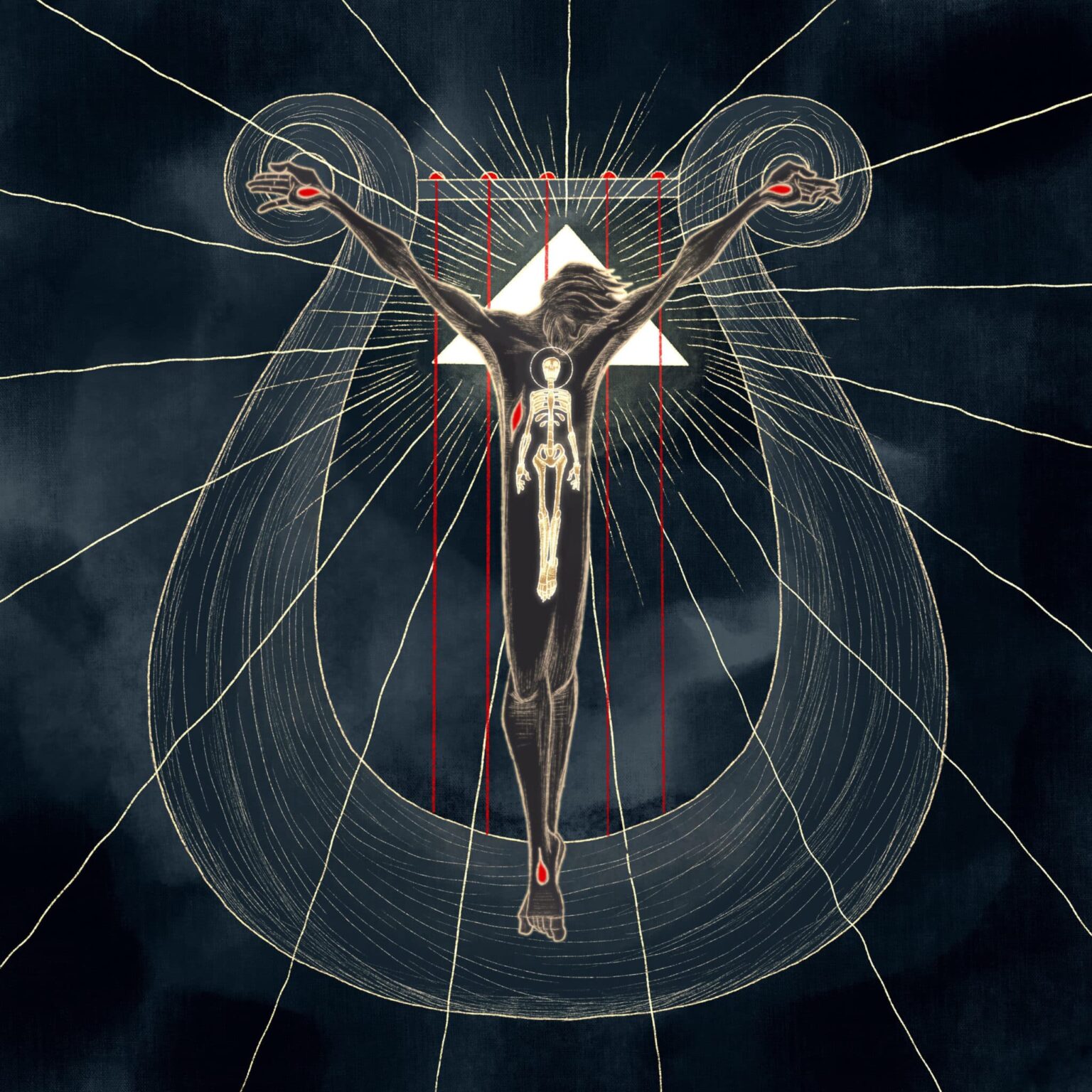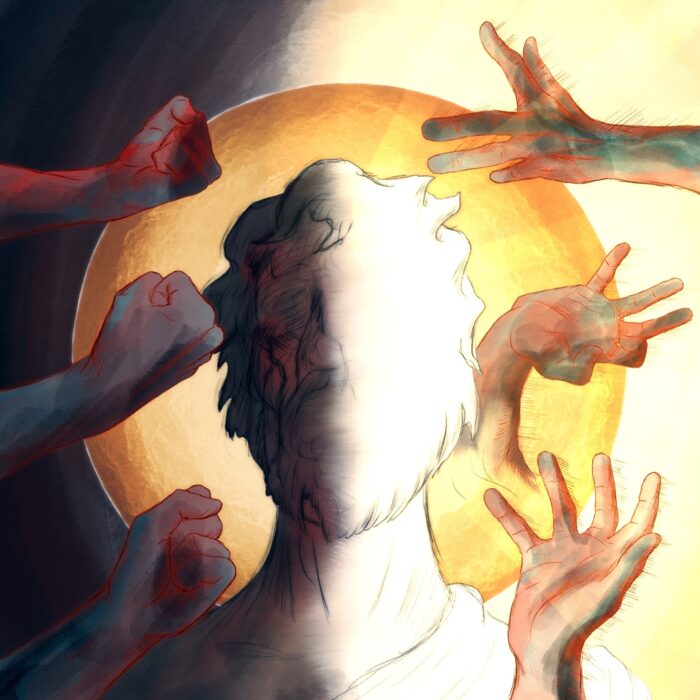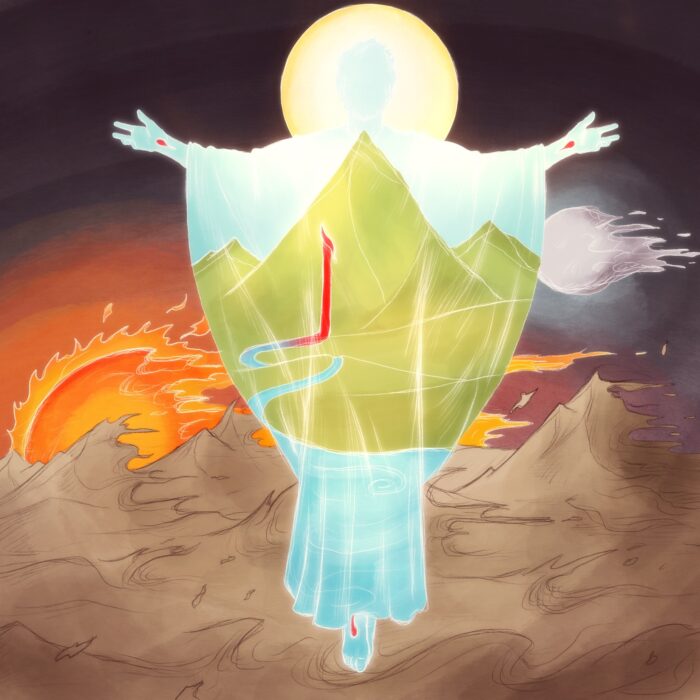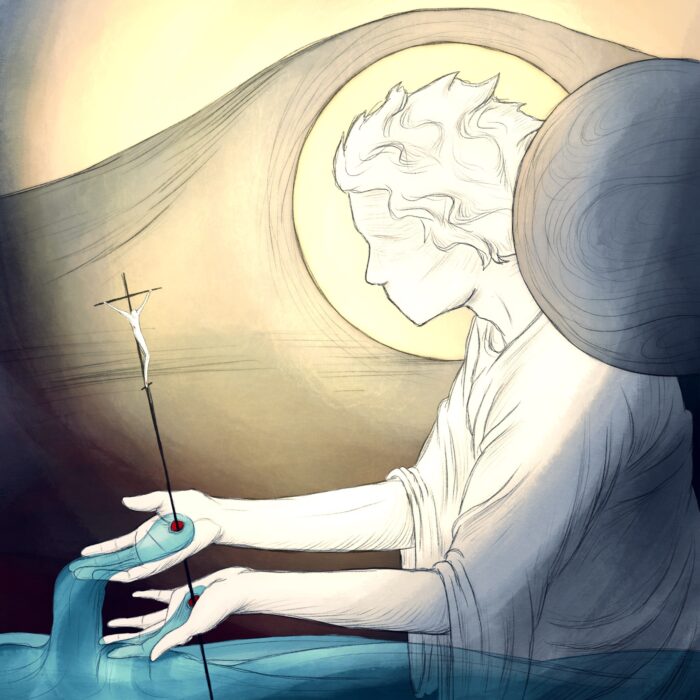Isaiah 16:10-11, “I have but an end to the shouting. Therefore my inner parts moan like a lyre for Moab, and my inmost self for Kir-hareseth.”
Consider the complexity of what we might analogically call God’s “emotional life.” In perfect and holy freedom He acts only in accordance with His will and rejoices in His will—and yet, because of human sin, it would seem that doing this also (in a real and unfeigned way) causes Him to lament (we see this tension in Luke 10:21 and 19:42). Within the context of Creation, there is lamentation in the heart of the Sovereign God…How? Why? I think we must conclude that it is because there is LOVE in the heart of God.
Precisely because God is fundamentally love—that is, fundamentally the giving of Himself in order that the other might be and be satisfied in Himself—He experiences lamentation, sorrow, pain within sphere of His fallen creatures. When, from eternity and in the Son, the Triune God chose to set His holy love on the objects of His holy wrath, He also chose—in sovereign love—to embrace pain. This is what Japanese theologian Kazoh Kitamori calls the “pain of God.”
And this pain that God chooses to embrace is not just any pain, it is the pain that is the chasm between an object of wrath and an object of love; a pain as deep and wide and broad as the rift between heaven and hell. In love, this chasm was—from all eternity—drawn up into God’s own heart and became, as it were, a lamentation of love borne in His “inmost self.” And the instrument on which this song of God’s love-borne pain is played, the Lyre of His heart’s lament, is the crucified Jesus Christ.
When the body of the incarnate God is stretched out on the wooden frame of the cross—bearing and bridging the chasm between vessels of wrath and vessels of love in His own experience—He becomes Lyre of the Triune God, held in the hands of the Father, played by Aeolian wind of the Spirit, who is Himself divine Love. And the melody played on Calvary’s Lyre during those six dark hours is the temporal manifestation of the eternal lament of love born in the inmost self of the Triune God.
However, for objects of God’s wrath who have ears to hear this lament as objects of God’s love, the song of God’s pain played on Calvary’s Lyre is, in truth, a song of glory and splendor and joy beyond hope. Yes, When received as the declaration of the “inmost self” of God, the lament of God’s love declares those who were not beloved as beloved, those who were not children as children, and those who were not God’s people as now God’s people. And, because the final note of the melody—the note that gathers all others up into itself—is played in the body of the Risen Christ, it is a song that ensures that—for all who will hear it—mourning is turned to gladness, and lamentation yields the fruit of joy.




